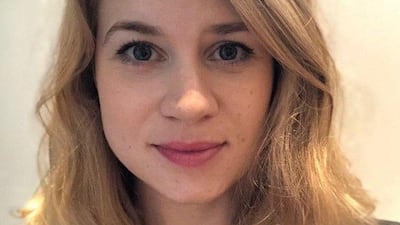On March 3, sometime after 9.30pm, Sarah Everard went missing. The 33-year-old woman had been walking home through Clapham Common, a well known public space in the south of London. She was never seen again. Ten days later, her body was identified and a serving police officer was arrested.
This gruesome and heartbreaking tale spurred over the past fortnight an outpouring among women about the experiences of simply being a woman in the public space, and the constant and pervasive fears about being out on the street, going about nothing more than our ordinary business. It has been a tsunami of everything from self-restriction, worry and anxiety to experiences of verbal, physical and sexual assault. Like #MeToo, seemingly every woman has had a story to tell.
A survey by UN Women recently found that 80 per cent of women of all ages in the UK said they had experienced sexual harassment in public spaces, rising as high as an astounding 97 per cent for those aged 18 to 24. “This is a human rights crisis,” said UN Women’s executive director Claire Barnett. Having to live with the threat of harassment means living a life that is limited.
Perhaps predictably, large numbers of men on social media have responded defensively with the hashtag #NotAllMen, claiming that renewed conversation about violence against women risks vilifying men. Some have also pointed out that men are frequently the victims of violent crime. But this distracts from the immediate point, which is about women, by hijacking it to talk about men. No wonder many women have reacted with rage.
When women want to talk about their experiences, why are they deflected and shut down? Why can’t their experiences be talked about and addressed on their own terms? In truth, when women raise issues about their experiences, myriad deflections, denials and diminishments are used to undermine them.
It is worth mentioning that while all of these men are busy reminding women of the obvious point that “not all men” commit violent crimes, most women are regularly worrying about which man, of all the men we do not know, will try to cause us actual harm. The author Margaret Atwood once made the point very clearly: “Men are afraid women will laugh at them. Women are afraid that men will kill them.”
Last Saturday, March 13, a large crowd of women went to Clapham Common to lay flowers in Everard’s memory. Reclaim These Streets, an activist group, had earlier cancelled a planned vigil due to Covid-19 restrictions, but hundreds of women went anyway. As night fell, police moved in to disperse the crowds. The images that came out of the incident were ugly: pictures of women being pinned down, flowers and other tributes being crushed and women being handcuffed. It simply reinforced the conversation about how women’s bodies and voices are restricted in the public space.

At a debate in the UK Parliament’s House of Lords on Wednesday, Jenny Jones, a baroness and member of the Green Party, elicited outrage from men when she made a “not entirely serious suggestion”, in her own words, that men not be allowed out after 6pm. Baroness Jones was being intentionally provocative, but the double standards of those who lashed out at her are stark. Men imagining living under restrictions is an intolerable idea, but women’s lives are just one long curfew.
Without a shred of irony, women are often asked: “If it really is so bad, then why don’t women speak up?”
Leaving aside that this whole conversation is being had precisely because women are speaking up, they probably don’t speak up even more because the problem is so widespread that it is almost unimaginable that things could be different. A study by Britain’s Trades Union Congress and the Everyday Sexism project about sexual harassment at work found that of the women who reported it, three quarters said that nothing changed afterwards. Sixteen per cent said they were treated worse as a result.
Often, whatever we say, or whatever we do, our emotional expression is “wrong”. There is never a right way to express ourselves.
We must begin the fight back by believing that we can create a world where women are not afraid to go out, and do not need to change their behaviour out of fear. The first and most important step towards this brave new world is that our stories and needs are not dismissed. Instead they must be heard, listened to and believed.
Shelina Janmohamed is an author and a culture columnist for The National



